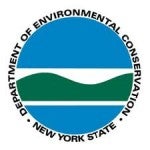Improving New York’s Proposed Hydraulic Fracturing Regulations
Around the country, states are taking a serious look at their regulations to manage shale gas development. New York has the potential to be a leader among these states. Environmental Defense Fund (EDF) believes that strong regulations and aggressive enforcement is critical to protecting public health and the environment from high-volume hydraulic fracturing and other hydrocarbon extraction activities in New York State. To that end, we have submitted detailed comments on the New York State Department of Environmental Conservation (NYSDEC)’s proposed rules and permitting conditions for hydraulic fracturing. The NYSDEC can put New York at the forefront of safe and clean shale gas development by implementing our suggestions in several critical areas:
1) Chemical Disclosure: Full public disclosure is rapidly becoming the industry norm across the country, but the proposed NYSDEC disclosure rules for chemicals used in the hydraulic fracturing process only covers chemicals with Material Safety Data Sheets (MSDS), thus failing to capture perhaps half or more of the chemicals used. This is especially problematic because MSDS only explore hazards in occupational settings and do not consider implications for public health or the environment. Further, the proposed rule only requires disclosure of additive products proposed to be used in hydraulic fracturing, as opposed to the chemicals actually used during the hydraulic fracturing process. EDF feels strongly that operators should disclose all hydraulic fracturing chemicals used on a well-by-well basis, posted on a searchable, publically accessible website.
2) Well Construction: Properly constructed, tested and maintained wells are critical to protecting New York’s precious groundwater and surface water aquifers from contamination by drilling fluid, wastewater and natural gas seepage. The proposed well construction regulations and permitting conditions need improvement to meet industry best practice standards. Furthermore, some of the proposed rules represent potential safety hazards for well pad workers. A model regulatory framework EDF, and others, are developing could be used to greatly improve NYDEC’s proposed well construction regulations.
3) GHG Emissions/Methane Leakage: EDF is a leading advocate of strict standards on limiting methane emissions from natural gas production. Methane is a pernicious greenhouse gas, many more times more powerful than carbon dioxide. To reduce the peak warming and improve air quality, it is critical to minimize the amount of methane vented or flared at the production site or leaked during storage and transmission. We strongly urge the NYSDEC to impose specific Green Completion and other emission-reducing requirements on operators, and to formulate hard emissions targets that provide incentives for operators to reduce methane leakage even further.
4) Wastewater: Hydraulic fracturing produces huge volumes of potentially toxic and radioactive wastewater. New York recognizes this problem but does not seriously address the lack of capacity for processing or safely storing hydraulic fracturing waste materials within the state. Current technology does not allow for safe, cost-effective purification of hydraulic fracturing wastewater at treatment centers for re-introduction into the water system, and should be banned. Insofar as it appears that the final disposition of the bulk of the wastewater produced in New York will be trucked out of state to deep injection wells, the proposed regulations and permitting conditions must grapple with this expensive and perhaps unsustainable practice. Finally, since wastewater recycling will likely be the dominant treatment option undertaken by shale gas operators in New York, this practice needs to be more thoughtfully and transparently regulated.
5) Phase-in: Even with the best rules on the books, it will take time to hire and train the necessary staff to implement and enforce the rules properly. New York is essentially building a regulatory program from scratch. EDF believes the NYSDEC should learn how to walk before it can run. Our suggestion is that New York phase in the regulatory program region by region. In this way, the state can be sure that the pace of drilling activity will not outpace its ability to adequately administer the regulations. So, too, this phase-in approach will allow the state to acquire valuable experience in step-wise fashion. The key is not doing it quickly, but doing it correctly.
 These and other adjustments to the proposed rules and permitting conditions are necessary to protect public health and the environment in New York. Shale gas extraction can be made safe through strong regulations and aggressive enforcement to protect communities. EDF is committed to working with the NYSDEC on these issues to produce the most responsible hydraulic fracturing regulatory framework in the nation.
These and other adjustments to the proposed rules and permitting conditions are necessary to protect public health and the environment in New York. Shale gas extraction can be made safe through strong regulations and aggressive enforcement to protect communities. EDF is committed to working with the NYSDEC on these issues to produce the most responsible hydraulic fracturing regulatory framework in the nation.
EDF’s full comments on New York’s hydraulic fracturing regulations are available here.













6 Comments
This is a nice post. Unfortunately, reasonable compromise positions like this don’t gather the headlines, media attention, and associated donations…. rather, the environmental response to shale gas seems to fall more into the “No Fracking”, “Gasland”, type of hysteria.
Too bad, these are all sensible rules. That gas is going to get drilled out, within the next decade, with or without the feedback of environmentalists. The more the green movement leans towards fear mongering and bumper sticker sloganeering, the less authority they will carry when reasonable adults sit down to try and balance mineral rights and environmental impacts.
The solution for fracking pollution is waterless fracking; Gasfrac has done over a 1000 fracks with gelled propane; you don’t need any water; you don’t produce any waste fluids (no need for injection wells); no need to flare (no CO2 emissions); truck traffic is cut to a trickle from 900+ trips per well for water fracking to 30 with propane fracs; and on top of that the process increases oil and gas production; it is a win for the industry, a win for the community and a win for the environment.
How much money has EDF received from the O+G industry? The answer to that could help understand your comments to the DEC.
The Sierra Club is undergoing a PR crisis now because it was recently exposed the SC took millions from Chesapeake Energy to promote shale-gas as a “clean transition fuel” in the SC’s Beyond Coal campaign. From the buzz on various listservs, it seems members are jumping ship in droves…
What We the People are learning is that the bigger Enviros, like SC, NRCD, and EDF will not protect us. This is why we are continuing to organize at the grassroots to BAN FRACKING in NY, and everywhere.
Rape and Murder cause injury in every case, and are made illegal under criminal law.
Likewise, HVHF shale gas extraction causes INJURY and DEATH in every case.
Therefore it should be criminalized.
This process is INHERENTLY UNSAFE! How dare you suggest that there should be sacrifice zones where fracking is “phased-in”? How would you like to live in such a zone? I do.
I attended every official DEC hearing on the SGEIS, and 3 unofficial self-organized hearings. I recorded these for Shaleshock Media. about 90% of this material is already online with the last bit on the way.
Here is the truth of how NYers feel about fracking:
Binghamton, Dansville, Loch Sheldrake 75% against.
NYC, Watkins Glen, Delhi, Ithaca: 85-100% against fracking.
You might *claim* to have 70,000 members in NY, but you do not speak for NYers.
Please, please Governor Cuomo, don’t poison me. Oh please, pretty please don’t poison me, Mr. Governor Frack Cuommo, even though you have received $150,000, plus or minus a couple of thousand, from the gas corporations. But what is important to you and your future political ambitions is the promised ten or hundred times this amount, that they will give you if you tow the corporate line of frack, frack, FRACK.
I would like to see this EDF have a box at the top of this website, getting us to their funding sources. Let us easily access just where all your donated money is coming from.
Is the EDF like the National Sierra Club??? Just where does the EDF get its money from??
Regulations don’t hack the mission, so why is EDF proposing them??
just another resident of New York State
David Kauber, Aurora, NY
EDF does not accept money from our partners. You will find more information on our corporate policy here: http://www.edf.org/approach/partnerships/corporate-donation-policy.
industry must test the wellhead of marcellus shale for radon concentration. The shale is known for containing it and nothing would prevent that gas from traveling out of the rock with methane.
If ithe natural gas is delivered into say NYC to quickly, the radon gs and its progeny do not have time enough to decay and will end up in people unvented kitchens with the windows not even opening in some apartments for ventillation.
This topic must be solved by the industry by testing for radon at the wellhead and taking the proper precautions to prevent an increase of lung cancer from radon.